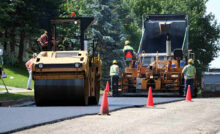The Versatile Marvel of Cardboard Boxes


Cardboard boxes, those unassuming containers made from humble paper pulp, have long been integral to our lives. From safeguarding delicate shipments to becoming the canvas for children’s creativity, these seemingly simple boxes play a vital role in modern society. This article will delve into the myriad uses and fascinating history of cardboard boxes, showcasing their remarkable versatility.
A Brief History
The history of cardboard boxes dates back to ancient China, where paper was invented over two thousand years ago. Initially, a form was used primarily for writing and art, but inventive minds soon realized their potential for packaging. By the 19th century, cardboard boxes as we know them began to take shape in Europe and North America.
However, in the late 19th century, the mass production of cardboard boxes became possible with the advent of the cardboard box-making machine. This innovation revolutionized the packaging industry, making cardboard boxes more affordable and accessible to businesses and consumers.
Utility in Shipping and Storage
One of the most prevalent uses of cardboard boxes is in shipping and storage. These boxes are lightweight yet sturdy, providing an ideal balance for protecting goods during transit. They come in various shapes and sizes, ensuring that everything from delicate electronics to bulky furniture can be safely transported.
Furthermore, cardboard boxes are eco-friendly, as they are recyclable and biodegradable. This makes them an excellent choice for businesses aiming to reduce their environmental footprint. There has been a growing trend towards sustainable packaging solutions in recent years, with cardboard boxes leading the charge.
Customization and Branding
Cardboard boxes are not just practical; they also serve as a canvas for branding and customization. Businesses can easily print their logos, slogans, and product information on these boxes, turning them into powerful marketing tools. Customized packaging reinforces brand identity and enhances the unboxing experience for customers, making it memorable and enjoyable.
Storage and Organisation at Home
Beyond business and industry, cardboard boxes find a second life within our homes. They are a budget-friendly solution for storage and organization. Whether stashing away seasonal decorations, organizing a cluttered closet, or creating DIY furniture, cardboard boxes are handy.
With some creativity and crafting skills, cardboard boxes can be transformed into bookshelves, toy chests, or even pet shelters. Pinterest and social media are awash with inventive ways people repurpose cardboard boxes into functional and aesthetically pleasing home furnishings.
A Source of Creative Expression
Cardboard boxes also hold a special place in the hearts of children and artists alike. An empty cardboard box can be a spaceship, fort, or puppet theater for kids. The possibilities are limited only by their imagination. These simple boxes provide endless hours of entertainment and help develop creativity.
Artists and designers often turn to cardboard as a versatile medium. Its affordability and malleability make it a favorite choice for creating sculptures, prototypes, and high-end fashion pieces. Renowned architect Frank Gehry famously used cardboard in the early stages of designing some of his iconic buildings.
The Future of Cardboard Boxes
As we march into the future, cardboard boxes continue to evolve. Manufacturers are researching and developing new materials and manufacturing processes to make cardboard boxes more durable, eco-friendly, and cost-effective. Innovations like water-resistant coatings and advanced adhesives make cardboard boxes suitable for various applications, including food packaging.
Additionally, the rise of e-commerce has led to an increased demand for packaging solutions, which has, in turn, driven advancements in cardboard box design and production. E-commerce giants are constantly seeking ways to optimize the packaging to reduce waste and shipping costs while protecting products.
Conclusion
Despite their unassuming appearance, cardboard boxes are an integral part of our daily lives. From safeguarding our precious possessions during shipping to becoming playthings for children and canvases for artists, these versatile containers are here to stay. As technology and sustainability concerns continue to shape our world, the cardboard box will undoubtedly adapt and remain an essential tool for generations to come. So, the next time you receive a package or find an empty cardboard box, remember the remarkable journey and its myriad possibilities.
Read also: What is Tim Ferriss Famous For?
Recent Posts
Comparing Free Chat GPT Options Available Today
In today's digital age, artificial intelligence (AI) has become a vital tool for enhancing creativity,…
Essential Components of Fire Suppression Systems
Before we get into the nitty-gritty, let's define what fire suppression systems are. These systems…
Plinko Betting: Tips for New Players
Welcome to the world of Plinko betting! Whether you're a complete newbie or someone who's…
Black Scatter Spins: Tips for Players
Hey there, fellow game enthusiasts! If you've ever found yourself lost in the colorful world…
Strategies to Win in Starlight Princess
Hey there, aspiring gamers! Whether you're an experienced player or just dipping your toes into…
The Humanizer: Restoring the Human Touch in a Digital World
In today’s fast-paced, tech-driven society, digital communication and automation dominate how we interact, work, and…


